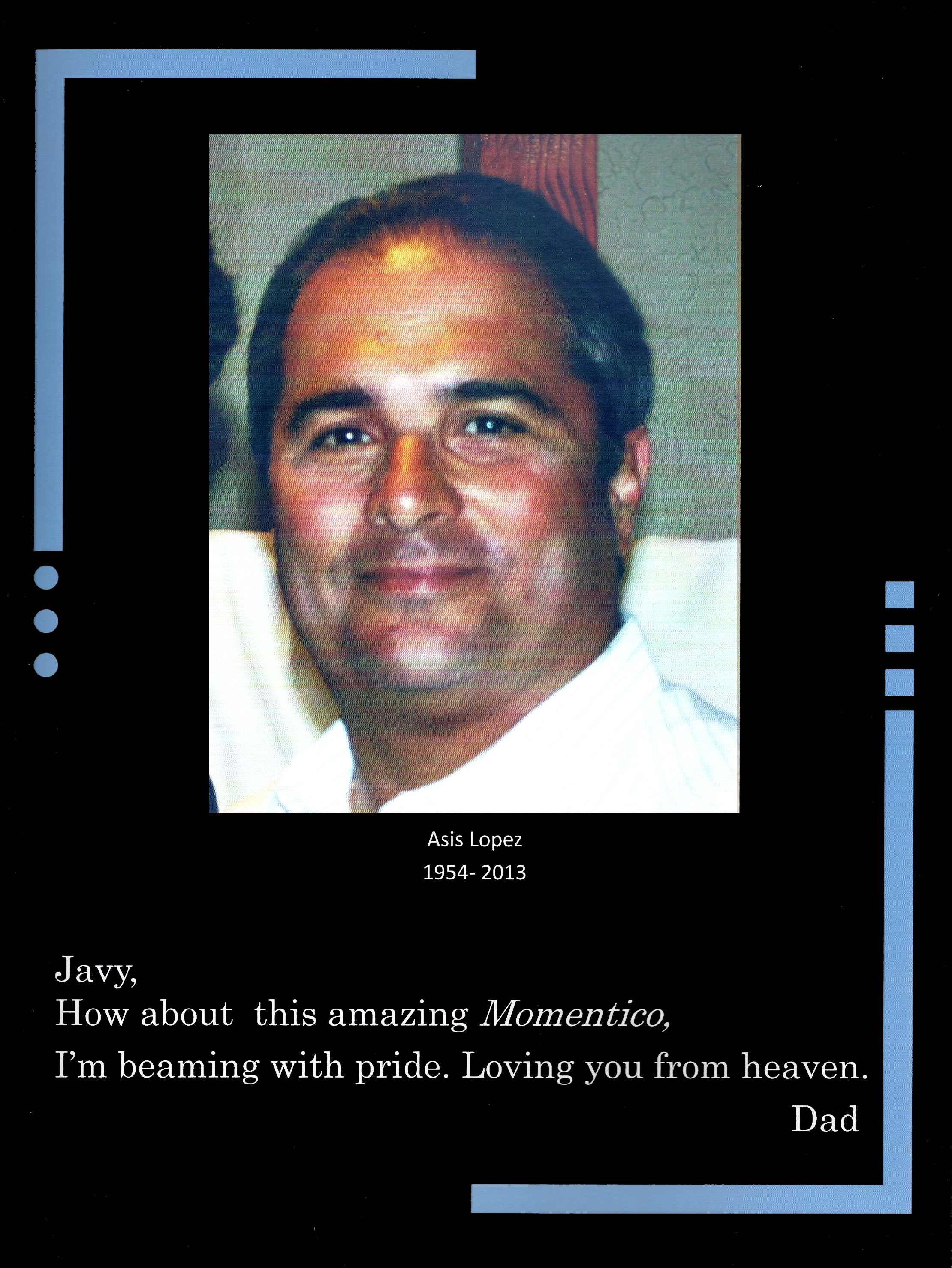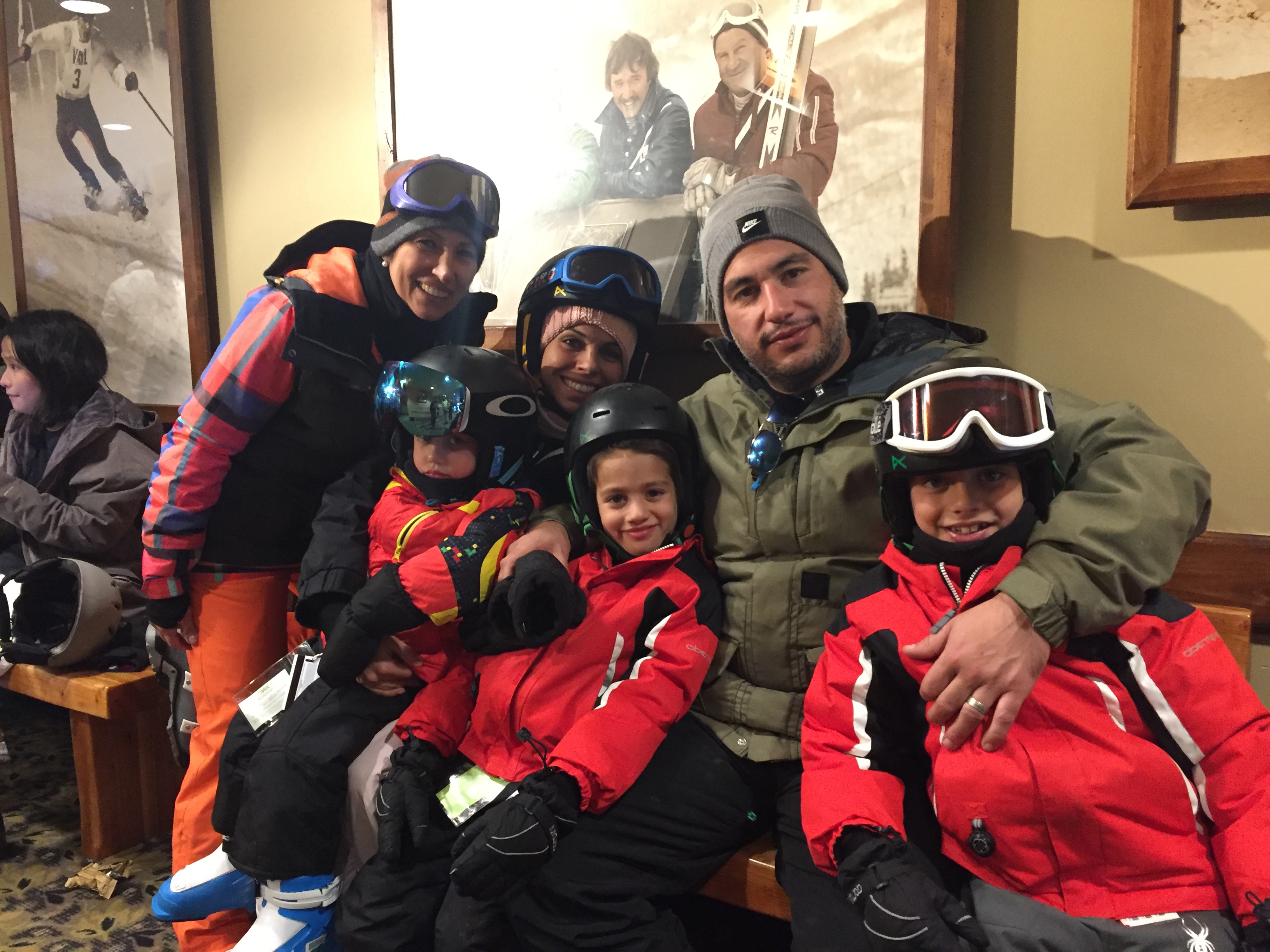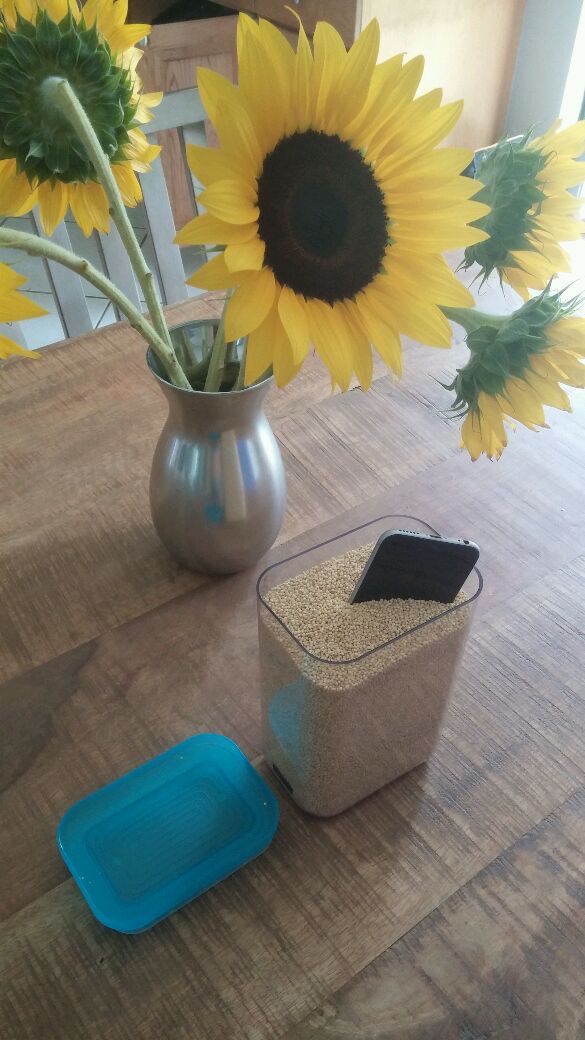On Friday morning my phone rings. I grab the phone and see that it is my girlfriend, so I drag the slider to the right. “Hey you!” Without so much as a “hello” she spouts out in an exasperated voice, “I can’t handle my kid getting a lollipop after Spanish anymore. I’m done! It happens every single week Caro and I haven’t wanted to be THAT parent, you know, the only parent that doesn’t let my kid eat the lollipop, but I’m going to HAVE to be because I simply can’t deal with my kid eating candy every week. I hate candy. Candy rots your teeth. Why can’t they give him a sticker?”
“I understand” I said, but she wasn’t finished. “That’s not all Caro. Then yesterday I took him to my dad’s house and he fed him mac and cheese with juice and cake and chocolate. This was his dinner Caro!” She’s not finished. “And if this was the only time he ever ate junk food then fine but then the weekend comes and we have birthday parties and there is more junk. So really it feels like he’s eating crap all the time. I’m calling you to ask you what I should do because I really don’t know what to do.”
Tuesday afternoon as I am heading to pick up my kids at school, my phone rings. I am wearing my headphones and without looking down at my phone I press the button to answer. Another mom friend of mine is on the line and she seems frustrated. “What’s up?” I ask. “My daughter started school this week and her lunch comes home untouched. I asked her why she didn’t eat, and her response was that she was not hungry. Then I find out that the reason she is not hungry is because they gave her Oreo cookies and “Cheez-its” for morning snack. Morning snack Caro! My daughter is eating oreos before 11 am! She is already a difficult eater. I can barely get her to eat any healthy food at all, so of course if she is given junk food for snack right before lunch, there is no chance she will eat her lunch. And when she got in the car she had a cupcake in her hand – so there goes dinner! Is this how it’s going to be? Does this mean that all she will eat every day is cookies, goldfish and chips without getting any nutrition? How can the school allow this? I’ve worked so hard these years to try to feed her healthy things and that’s it, in pre-k 4 her diet is going to hell. That’s all I got? 4 years? Really? Tell me what to do Caro. I am so upset.”
I receive calls like this all the time from mothers who are worried, frustrated, and disoriented. You might assume that these women are strictly healthy eaters, but that is far from being the case. These are not tree huggers or granola women. These are regular moms who eat regular diets, some good and some bad. They struggle with weight and sugar addictions and falling off the wagon. Yet they have started to understand how much food affects life. It used to be that most parents didn’t know any better and didn’t pay much attention to what their kids ate. They only cared that their kids ate SOMETHING. But times have changed. Our culture is changing and society is figuring out that what we eat does matter. So these women want their kids to develop healthy eating habits. They want their kids to learn earlier than they did, to struggle less than they do, to feel better and be happier.
These women call me for answers because they know that I have dedicated a portion of my life to eating healthy – so much so that I even blog about it. I must have it all figured out right? WRONG. I wish I did but the truth is I am equally as frustrated and disoriented as the rest of them.
For example, my kids receive the same lollipop after spanish class. My kids eat the same junky snacks at school and go to the same junk-infested birthday parties that theirs do. I used to justify this in my mind by priding myself on having a ” eat clean” home. My home was the safe haven, where food was healthy and nutritious. But sadly, now even that is being jeopardized.
A few weeks ago, I discovered that my nanny gives my children gummy worms at the end of the day as a prize for behaving well. I confronted her about it and asked her to stop. I showed her these individually wrapped prunes that my children love and kindly suggested she use those if she wishes to “reward” them. (Even though I don’t reward them for doing the things that they are supposed to do but I was trying to be flexible.) Days later, I discovered that she was giving them Juicy Fruit gum. Trying to be reasonable, I didn’t say anything. This week, as I open the front door of my home, my children run cheerfully towards me. I can’t help but notice my son’s lips are shiny and red. I say “Hey boo, what do you have all over your mouth?”
“Gummy!!!!!” he squeels. “Where did you get it from?” “Nanny gave it to me as a prize because I behaved so good!” I thought I had been clear.
Now I am in a predicament. On the one hand I think – this is my home, she needs to folllow my instructions and respect my rules. On the other hand I think- Am I being unreasonable? One gummy isn’t going to hurt them. Am I too strict?
Once again I tell her to please avoid giving the kids gummies when she tells me “but those are the fruit ones!” I pull out my prunes and she says “they don’t like those.” Of course they don’t. Why would they if they know you’re going to offer them juicy fruit and candy instead. They USED to love them.
Sadly, it doesn’t end with the nanny. We used to have fearless fridays where we made food that was kind of a cheat but a healthier cheat. But now we just cheat. We have taco night and chocolate chip cookies, and sometimes if we’re having enough fun we may even make s’mores.
I struggle between being a “balanced” parent and my deep belief in the power of eating healthy. I don’t want to make eating healthy “a thing.” I don’t want my kids to rebel against me or eat unhealthy behind my back. I don’t want to be too extreme. I don’t want to deprive my kids or make them socially outcasted because of food. I don’t want to be judged by everyone else. But I also don’t want my kids to develop poor eating habits that they will carry with them for the rest of their lives. I don’t want to conform to social norms just because it’s what everyone else is doing. I don’t want my kids to get sick because they eat too much junk.
So many family members and friends look at my children with pity when the word “no” comes out of my husband’s or my mouth. We are perceived to be unreasonable and unjust. You can see them giving each other a judgmental look or muttering under their breath “they are just kids” or “one time isn’t going to kill them.”
Grandparents, aunts, uncles, great-grandparents all think that life doesn’t exist when they aren’t present. They think that the one time THEY see them MUST be the ONLY time that my kids get a treat.
If I had a nickel for every time someone tells me “Well one day isn’t going to hurt them.”
But here’s the problem folks. It isn’t one time. Eating unhealthy is not the exception. Eating unhealthy is the norm.
Either my kids’ grandparents are taking them to Chilli’s for burgers on a Tuesday, or Panera’s for mac n cheese on Thursday, or it is Friday pizza day at school, or cupcakes for johnny’s birthday, or cheez its for snacks, or ice cream after soccer, or cookies for the bake sale, or Friday night cheat night, or popcorn at the movies. Sometimes it’s a vicious combination of two or more of the above on the same day! And as I just told you, this is not only what others are feeding my kids, it is also what we give the kids.
Each and every occasion calls for the same argument – “one time is not going to hurt them.” But what about if you add up all the times? What if we were to keep a food log of each and every time we made an exception for our kids, what would the percentages be? Would eating unhealthy be the exception or the rule? In the case of my family, it might be a close call.
The struggle is real and in a sense we are under attack. The availability of junk food or fake food is overwhelming and it bombards you from every angle through kid pleasers like the family members, or commercials, or schools, or fast food joints with fun playgrounds or happy meals that are irresistible. Sometimes it feels like a battle we simply cannot win.
So what do I tell these moms when they call me?
“I feel you sister. You are not alone.”
What do we do about it? Well here’s what I’m learning as I navigate through parenting, dealing with my father’s death as result of cancer, and staying healthy:
What matters the most in this life is the love you give and the special moments you share with your family. Everything else kind of washes away anyway.
Having said that, love alone is not enough in enjoying a healthy lifestyle. In terms of what you feed your kids, the scales should tip generously in the favor of eating healthy. If you can accomplish that, it is a huge achievement as a parent.
Talk to your kids and educate them on the importance of food. Lead by example and eat healthy yourself. (Maybe you too could benefit from keeping a food log.) Take your kids to pick strawberries or grow an herb garden with them. Teach them that food can be medicine and let the power of foods like ginger and garlic and turmeric heal them when they are feeling sick. Pile on the greens every chance you get. This may mean something as simple as putting one piece of broccoli on their plate or one leaf of spinach with olive oil and calling it a salad. Incorporate vegetables and fruits into their daily diet. Every day. In one form or another.
Participate in making the exceptions be truly exceptions. Maybe you can join forces with other like-minded moms and offer teachers healthier snacks to give your children. Maybe you can offer to bring water to the soccer game instead of gatorade or juice. Say “no” when you need to say no. Maybe, just once in awhile, you have to be the “evil” mom that doesn’t let your kid eat the lollipop after spanish. Draw your boundaries where you need to. These are your kids and your responsibility. It is up to you whether eating unhealthy is the exception or the rule.
If your child is suffering from health issues, attention issues, weight issues, allergies, or anything else, you may have to pay closer attention to what that child is eating. You may have to be more strict, more unreasonable, and more judged by others. You have to be a conscious and mindful eater and educate yourself so you can make those kinds of decisions when they come up. You have to be ready for war, but pick your battles.
If you can do that, you can probably learn to enjoy the exceptions too. You can smile when the “kid pleasers” show up with cupcakes because you know this is their way of expressing their love for your children. You can relax a little when they eat the mac and cheese at grandpa’s house because you know they are happy and they are loved and they are lucky to have grandpa.
If you do your part- if you show up and you love, you teach, you lead, and you nourish their bodies as well as their souls- maybe, just maybe, it will all balance out in the end.









 You know those days when there is a domino effect of events that totally throws your day for a loop? I was having one of those days. I woke up an hour late. So late in fact, that when my eyes opened and zoomed in at the time, I realized I only had 13 minutes to make it to my running group. First domino.
You know those days when there is a domino effect of events that totally throws your day for a loop? I was having one of those days. I woke up an hour late. So late in fact, that when my eyes opened and zoomed in at the time, I realized I only had 13 minutes to make it to my running group. First domino.